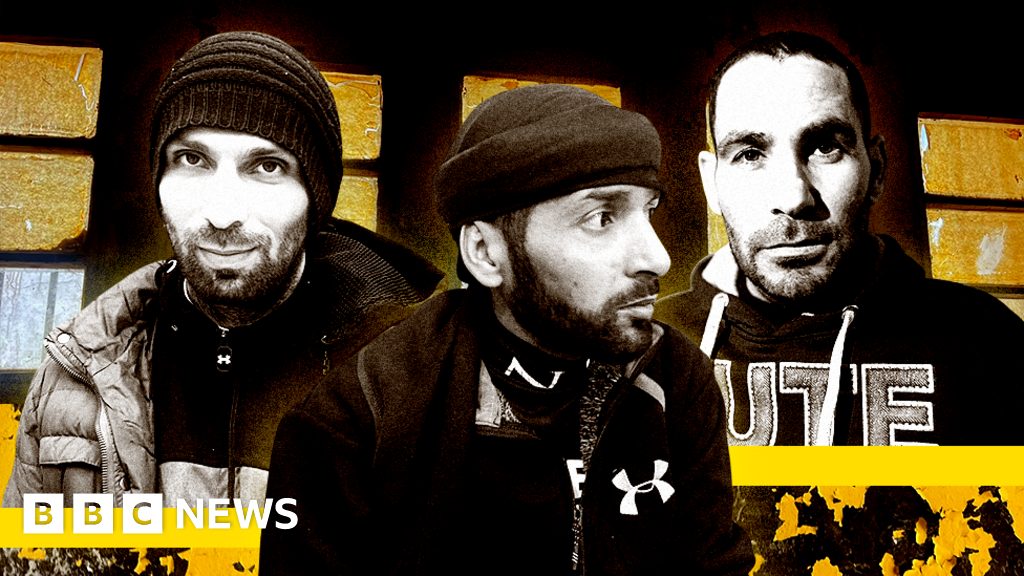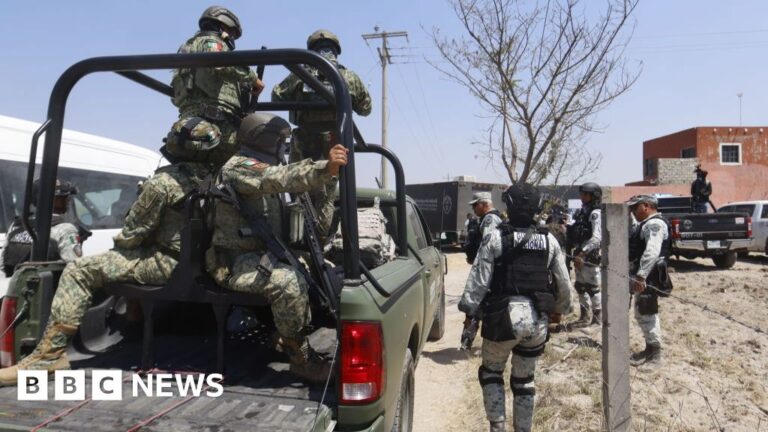Here is the plain text result without the HTML code:
It was a defining moment of the fall of the Syrian regime – rebels freeing inmates from the country’s most notorious prison. A week on, four men speak to the BBC about the elation of their release, and the years of horror that preceded it.
The prisoners fell silent when they heard the shouting outside their cell door. A man’s voice called: “Is there anyone in there?” But they were too afraid to answer.
Over years, they had learnt that the door opening meant beatings, rapes and other punishments. But on this day, it meant freedom.
At the shout of “Allahu Akbar”, the men inside the cell peered through a small opening in the centre of the heavy metal door. They saw rebels in the prison’s corridor instead of guards.
“We said ‘We are here. Free us,'” one of the inmates, 30-year-old Qasem Sobhi Al-Qabalani, recalls.
As the door was shot open, Qasem says he “ran out with bare feet”.
Like other inmates, he kept running and didn’t look back.
When they came to start liberating us and shouting ‘all go out, all go out’, I ran out of the prison but I was so terrified to look behind me because I thought they’d put me back,” says 31-year-old Adnan Ahmed Ghnem.
They did not yet know that Syria’s President Bashar al-Assad had fled the country and that his government had fallen. But the news soon reached them.
“It was the best day of my life. An unexplainable feeling. Like someone who had just escaped death,” Adnan remembers.
Qasem and Adnan are among four prisoners the BBC has spoken to who were released this week from Saydnaya prison – a facility for political prisoners nicknamed the “human slaughterhouse”.
All gave similar accounts of years of mistreatment and torture at the hands of guards, executions of fellow inmates, corruption by prison officials, and forced confessions.
Families sent loved ones money for food in the prison but they say corrupt officials would keep much of it and give the inmates only limited rations.
In some of the cells, inmates would pool all of the food together. But it wasn’t enough.
Diseases were rife and the inmates had no way of stopping them from spreading.
Two of the men we spoke to who were released on Sunday say they had contracted tuberculosis in Saydnaya – one said medication was frequently withheld as a form of punishment.
But Adnan says the “diseases from fear” were even worse than the physical ones.
At a hospital in Damascus this week, an official said brief medical checks of the detainees that were sent there had found “mainly psychological problems”.
These accounts paint a picture of a place with no hope, only pain.
The prisoners spent much of their time in silence with no access to the outside world, so it is no surprise that they say they knew nothing of the rebel Islamist group Hayat Tahrir al-Sham’s (HTS) rapid advance in Syria until they were broken free that morning.
Qasem said they could hear what sounded like a helicopter taking off from the hospital grounds before the men’s shouts in the corridors. But in the windowless cell they couldn’t be sure.
Then the doors opened, and the freed inmates began running as fast as they could.
“We ran out of the prison. We ran from fear too,” Rakan says, his thoughts on his young children and wife.
At one point in the chaos, he says, “I was hit by a car. But I didn’t mind. I got up and carried on running.”
He says he will never go back to Saydnaya again.
Adnan, too, says he couldn’t look back at the prison, as he ran crying towards Damascus.
“I just kept going. I can’t describe it. I just headed for Damascus. People were taking us from the road in their cars.”
He now fears each night when he goes to sleep that he will wake in the prison, and find it was all a dream.
Qasem ran to a town called Tal Mneen. It was there that a woman who provided the freed prisoners with food, money and clothing told them: “Assad has fallen”.
He was brought to his hometown where celebratory gunfire rang out and his tearful family embraced him.
“It’s like I am born again. I can’t describe it to you,” he says.
Additional reporting by Nihad Al-Salem
Source link




